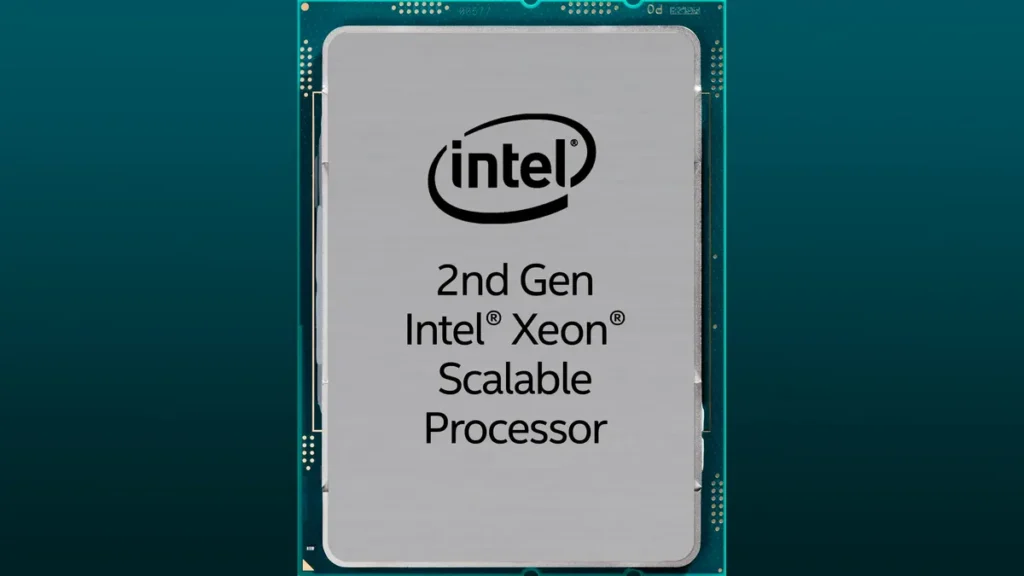The 2nd Generation Xeon Scalable (Cascade Lake) brand of processors will no longer be manufactured by Intel. This news comes after the company made the announcement. It is incredible that Cascade Lake has been around for as long as it has, given that it is two generations behind the CPUs that Intel is now producing (4th Generation Xeon Scalable Sapphire Rapids), yet it has. When this is taken into consideration, it is not hard to understand why the former has been around for such a long time.
Features of the Intel Xeon Cascade Lake CPU
Cascade Lake has been around since 2019, which is the year that it was released by Intel to replace the Skylake microarchitecture, which had been around for a very long period. Cascade Lake is intended to be an improvement over Skylake in a number of ways. You poor thing, Cascade Lake, have gone through a lot of trouble in your life.
Due to the unrelenting competition presented by AMD’s 7nm EPYC Rome CPUs, Intel was forced to make a hasty decision to discontinue several of the Cascade Lake Xeon SKUs that it had previously released. At the same time, it was necessary for the corporation to lower the pricing of the products that were still available. Cascade Lake underwent a refresh not long after that, and not long after that, Xeon Cascade Lake Refresh components were released with a price reduction of up to sixty percent for each core.
Those of you who are familiar with Intel are surely aware that the manufacturer of chips does not make it a practice to cut the costs of its CPUs, much less to issue an update in such a short amount of time. Those of you who are not familiar with Intel may not be aware that Intel has released an update to its processors in such a short period of time.
Cascade Lake’s widely fragmented feature set was a contributor to the collapse of the microarchitecture, which was caused by a combination of factors. One example is that not all Cascade Lake chips were able to support the same amount of memory or Optane DC Persistent Memory DIMMs. On the other hand, AMD’s EPYC Rome product line offered consumers a consistent experience across all of the company’s several product iterations by providing the same feature set.
The manufacturing of Intel’s Cascade Lake-X (high-end desktop) and Cascade Lake-W (workstation) processors was halted in July of this year. The Xeon chips are the next component that will be removed from the system, as was to be expected given the circumstances. Both the tray and packaged forms of the Cascade Lake Xeon CPU will be discontinued as a result of the decision to halt production of the device. PCN is an abbreviation for “Product Change Notification,” and the document that Intel provided featured a list of 68 different Cascade Lake models.
Customers of the semiconductor company have until April 2024 to finalize their purchases with a local Intel representative if they want to do so. Cascade Lake won’t be completely taken off the market for at least another few of years, as Intel has guaranteed that it will fulfill all outstanding orders for Cascade Lake Xeon by October 2026. This date is the latest that Cascade Lake will be completely removed off the market.
Intel stressed in a related PCN report that the company’s attitude toward embedded customers has not changed and that there has been no modification to that policy. Therefore, the 22 people who are still alive today who are considered to be part of the Cascade Lake bloodline are those who have Cascade Lake in their processors.
It should not come as a surprise that the Cascade Lake embedded SKUs will be around for a little bit longer than their socket counterparts because embedded products have a longer life cycle than their socket equivalents. This is because embedded products have a longer life cycle than their socket equivalents. Finally, the transition of Intel’s Cascade Lake embedded chips to the Intel Embedded Architecture has been finished. This change, which will take effect after October 2026 and ensure continued support, will take place.



[…] of AMD’s new Zen 4c equipped EPYC 8324P and 8324PN (Siena) server CPUs were recently tested in Linux by Phoronix, and the results showed that both chips deliver […]